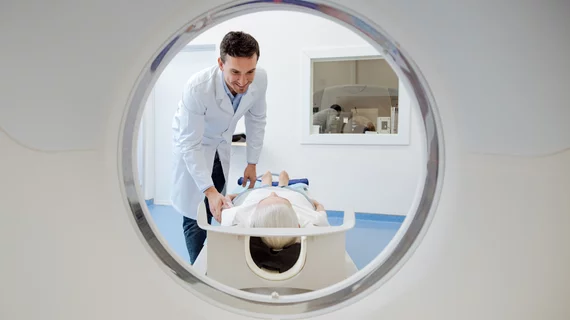Subtle Medical receives $1.6M grant to limit gadolinium use with AI
Subtle Medical has received a grant for up to $1.6 million from the National Institutes of Health (NIH) to develop an AI solution, SubtleGAD, that could reduce the amount of gadolinium used during MRI scans. The Small Business Innovation Research grant is contingent on certain deliverables.
“With SubtleGAD technology, hospitals and imaging centers will be able to deliver safer MRI exams without sacrificing the clinical quality of the images,” Enhao Gong, PhD, co-founder and CEO of Subtle Medical, said in a prepared statement. “We are grateful to receive NIH's support to further the development of our AI product and bring it into clinical use.”
SubtleGAD is Subtle Medical’s third AI solution. The other two are the FDA-approved SubtlePET and SubtleMR, which is currently under FDA review.
Gadolinium retention after the use of gadolinium-based contrast agents (GBCA) has been a big topic in healthcare in recent years. For more coverage of the use of GBCAs in medical imaging, click here and here.

